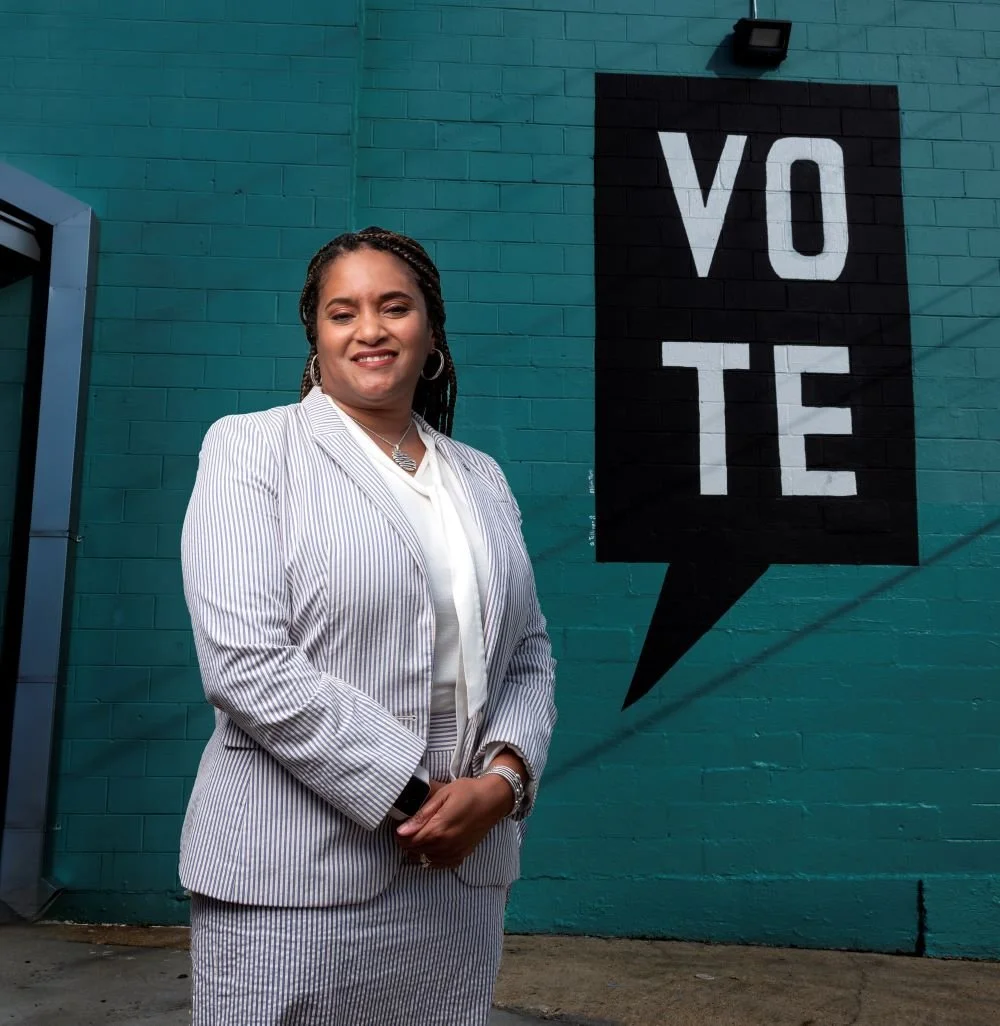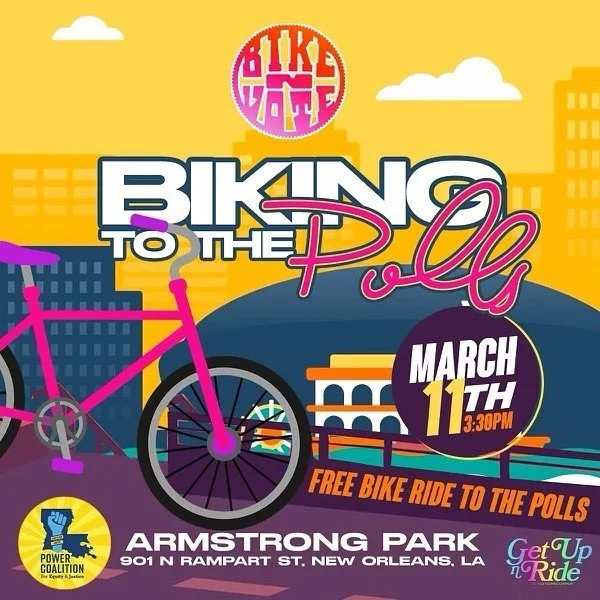To Have Hope, We Need Joy
Power Coalition Executive Director Ashley Shelton. Photo by Jorge Sanhueza-Lyon.
“If you can’t figure it out in Louisiana, you can’t figure it out anywhere,” says Ashley Shelton, Executive Director of Power Coalition for Equity and Justice. As leader of one of the state’s most powerful civic engagement tables, she sees the abysmally low voter turnout in last month’s gubernatorial election — just 36 percent, the lowest in a decade — and the hard right state government it portends as a call to action, not a time to throw in the towel.
Like many organizing and voter engagement organizations across the South, Power Coalition is dealing with a confluence of factors making it harder than ever to get people engaged, whether at the polls or in ongoing policy processes. Measures restricting ballot access, highly partisan district maps, efforts to suppress public input and criminalize protest, disillusionment with corruption, and the realities of crushing poverty are taking their toll.
Despite all this, coalition members contributed to some important wins in the last year, bringing voter attention to the little-known Public Service Commission, which has significant power over state climate policy; getting state funding for a roof repair program that will support weatherization efforts; and securing public input in state redistricting processes. These incremental wins in a challenging political environment stem from groups’ ability to motivate people not just around issues but around their sense of identity. From Bike N Vote events to public murals, Power Coalition is making deep connections and spurring people to action through culture and joy.
We caught up with Shelton last week, in the run-up to the state’s general election, to talk about what it takes to engage voters today.
Why are culture and joy so important for this work?
Black folks [who make up a third of Louisiana’s population] have only been able to vote freely since 1965, and now we have come full circle, fighting again for things we already won. It’s hard for Black voters to hold onto this idea that if we just do this one more thing, things are going to get better. Things have gotten better incrementally, but have not gotten better at scale. We need hope to be able to lead beyond this experience, to be able to lead forward. And so much of our hope is connected to joy. We have to celebrate what is real, palpable, what people can touch and see and feel. It’s a way to re-engage folks who are exhausted by a political experience that is not giving them what they need. There’s an opportunity to make real change, but we have to get folks ready to do the hard work in front of us.
What has been the most successful culture-based campaign for Power Coalition?
Bike N Vote has been a shining star in what it looks like to bring joy in this work, to help young people connect to democracy through the lens of their lifestyle. Half of the riders are first time voters. These kinds of events lower the threshold down to a place where people can engage, verses feeling afraid, or that this isn’t a place for them. They have an opportunity to talk amongst themselves and share sample ballots. No one wants to go into a voting booth and not know what they are doing.
Bike N Vote was started by a leader that was part of our She Leads program, a young Black woman we made an investment in who is now doing all these innovative things to engage young voters.
What inspired the new mural Power Coalition commissioned in Shreveport, and what do you think its impact will be?
“The Power of the Ballot” by muralist Ka’Davien Bayor, assisted by professional portrait artists Eric Francis, Brandon Armstrong, and Dominique Mclemore. Photo by Oh So Dope Photography.
One of our board members who sat on the board of the Kennedy Center asked what it would look like to build an arts commission. From that, we granted four artists commissions themed “Your Voice, Your Vote, Your Power,” and the mural was one of them. The ability for folks to engage with the present and history in one look at this intergenerational mural is important and powerful. Another commission was for a Mardi Gras Indian beader to create a piece. We are working with youth to share it, providing a reading list to students in schools around New Orleans about why voting is important, and providing sample ballots for their parents.
From these micro-commissions we have seen so much joy and power in the culture of Louisiana. Whether a large or small investment, it moves the needle in a way that we have found is very powerful. We need to think outside the box and not be stuck in a traditional voter engagement paradigm. How are we engaging people to be as excited about voting as they are about enjoying all that Mardi Gras has to offer? That’s the work of being able to connect with people where they are, to help them see all the ways that voting impacts their lives, and that if they are a part of it, they can weigh in and make a difference.



